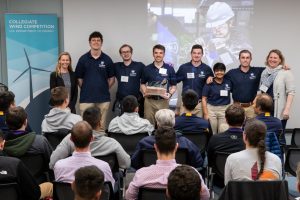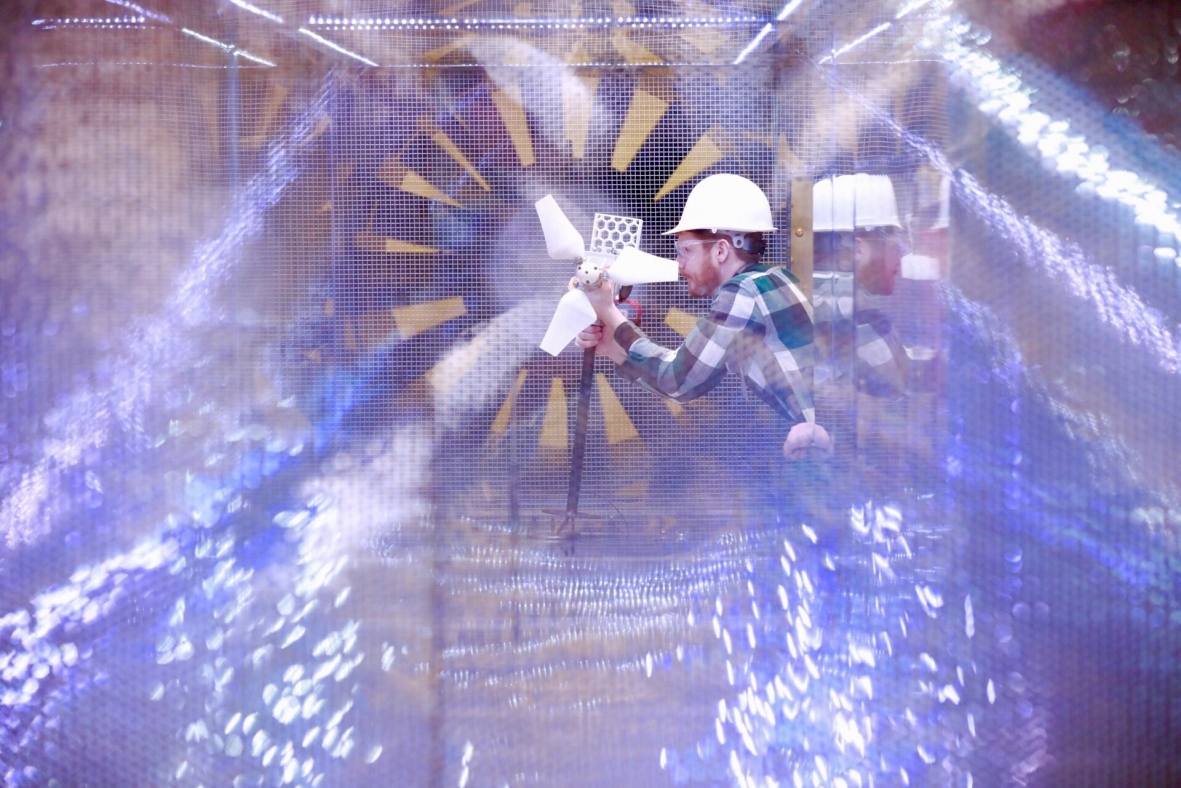
Twelve collegiate teams gathered at the U.S. Department of Energy (DOE) National Renewable Energy Laboratory (NREL) Flatirons Campus last week to compete in DOE’s Collegiate Wind Competition Technical Challenge. Penn State University took home first place overall for their revamped wind turbine electrical system.
Congratulations to the winners in each of the categories during the 2019 Collegiate Wind Competition Technical Challenge:
- First place overall: Penn State University
- Second place overall: Virginia Tech
- Third place overall: California State Maritime Academy
- Turbine Testing Award: Penn State University
- Project Development Award: Iowa State University
- Technical Design Award: Penn State University
The Collegiate Wind Competition aims to prepare college and university students from multiple disciplines to enter the wind energy workforce by providing real-world technology experience. The competition challenges participants with tasks including business plan development, wind plant siting, and wind turbine design, building, and testing.
The full-scale Collegiate Wind Competition is held biennially, with the last event held in 2018. The technical challenge offers an opportunity at a smaller scale for students to return and improve on their previous work. Students had another shot to take on the second-generation wind tunnel, developed in 2018 by the NREL team, specifically for the Collegiate Wind Competition.

Teams were tasked with developing:
- An effective mechanical, electrical, and aerodynamic wind turbine and load design that is safe and reliable for testing in an on-site wind tunnel.
- An electrical control system that can maintain a constant voltage into a competition-provided, variable-resistance load during the durability portion of the turbine testing.
- A cost of energy analysis for the site plan developed in 2018.
The teams completed several rounds of testing in the second-generation tunnel and adjusted their designs throughout the technical challenge. Final scores were determined by each team’s scoring in four categories: turbine testing, project development, technical design, and knowledge of and adherence to competition rules and regulations.
The 2020 Collegiate Wind Competition will be held at the American Wind Energy Association WINDPOWER Conference in Denver, Colorado, June 1-4, 2020. Learn more about the 2020 Collegiate Wind Competition and the 12 teams that have been selected to compete.





